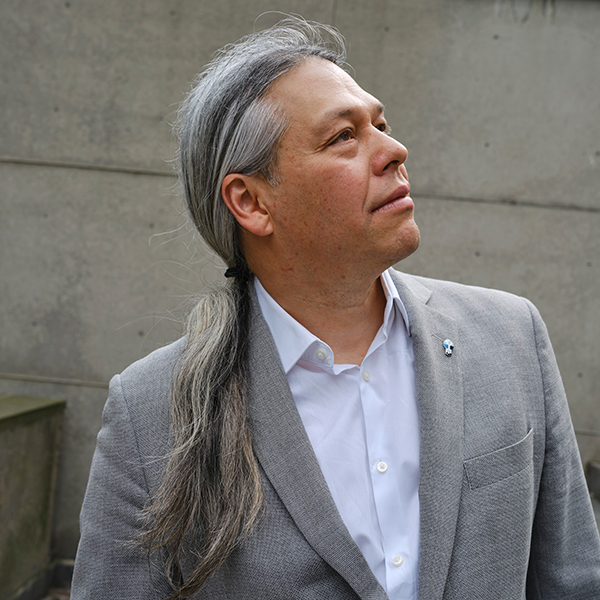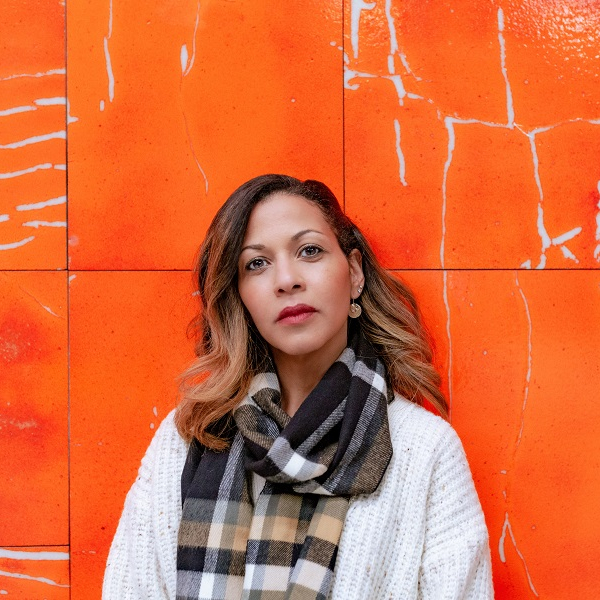Arif Virani, BA’94, Canada’s justice minister and attorney general, has no shortage of challenging files to contend with.
A much-anticipated online harms bill is on his to-do list. Judicial appointments need to be made – especially after his government received a stinging rebuke from Supreme Court Chief Justice Richard Wagner last spring over the slow pace of those appointments. Virani, who recently participated in his government’s National Summit on Combatting Auto Theft, is also looking at options for tackling the alarming increase in car thefts across the country.
There is a lot to do, but Virani presents himself as a man who is very much enjoying his new job.
“It was a bit of a ‘dreams can come true’ moment,” says Virani. He took on his new ministerial responsibilities last July.
“I wasn’t desirous of any cabinet position,” says Virani, “but if there was one that I could pick, it would be exactly this one. I couldn’t have imagined a role that I would have wanted more.”
A minister in the making
Looking at his CV, you could argue that Virani had been quietly preparing for this moment for some time.
Before he became a politician himself, he spent more than a dozen years as a counsel at the Ontario Ministry of the Attorney General, focusing on issues related to constitutional law. “I was once the civil servant lawyer briefing the attorney general on litigation matters, and now I am the attorney general at the federal level receiving briefings from federal civil servants. So, I understand their perspectives and the non-partisan approach they take in their jobs. I understand the quality of their work.”
He also has some useful international experience which broadened his perspective on law enforcement and reinforced his commitment to human rights. He worked with Commonwealth Human Rights Initiative, an NGO in India, mostly on police reform in that country. Then, he spent a year as an assistant trial attorney prosecuting genocide at the International Criminal Tribunal for Rwanda.
There are a couple of other items on his resume that bear mentioning. One is directly related to the role he now finds himself in. The other is more connected to the type of politician he aspires to be.
Virani spent almost three and a half years as the parliamentary secretary to the minister of justice and attorney general (he has been the parliamentary secretary to ministers in five different portfolios, including immigration and international trade).
“The key piece [of that role] is that you are the stand-in for the minister at times when they are unavailable, therefore you’re briefed the same way the minister is,” says Virani. “Another key piece is that you have a regular seat at the Standing Committee on Justice and Human Rights. A lot of the heavy lifting on the legislative agenda gets done at the standing committees. I was involved in things like the changes to the Divorce Act.”
A promise to himself
As you go through Virani’s CV, you’ll spot a reference to his volunteer efforts with the South Asian Legal Clinic of Ontario (SALCO). It is easy to overlook, but Virani would argue that it is one of the most important experiences in his career and one of the things he is proudest of.
After graduating from law at the University of Toronto, Virani worked at the African Canadian Legal Clinic.
“I was learning about anti-Black racism through a litigation lens and as I surveyed the legal aid landscape – services for people who are low income and who can’t afford legal services – I saw that there was the Chinese and Southeast Asian Legal Clinic in metro Toronto, there was an Indigenous legal aid clinic, there was a francophone legal aid clinic, but there was no legal aid clinic for the hundreds of thousands of Ontarians who looked like me. There was no legal aid clinic for brown-skinned South Asians. I thought that was a bit of a void and that we should have a legal aid clinic that could serve that demographic in a linguistically and culturally sensitive manner.”
Virani played a leading role in the efforts to create such a clinic, efforts that resulted in SALCO.
“It took us about nine years to get it fully up and running with dedicated annual provincial funding,” says Virani. “What I observed was, hmm, maybe this could have gone a bit faster if we had had an ally on the inside, somebody at the provincial cabinet table advocating for the clinic. Maybe it might have been a two- or three-year process and not an eight- or nine-year process. And I started to think, ‘Maybe I could be that ally.’”
His involvement with SALCO prompted him to run for public office and now that he is an MP and a cabinet minister, Virani says he makes sure he remembers the reasons why he became a politician. “I made a promise to myself to always be an ally to those who are on the outside looking in. Whenever I get a request from a stakeholder, I always try to take that call, to take that meeting.”
Not keeping pace with the online world
Virani is spending a lot of his time thinking about online harm and how to address it. He has been grappling with the issue for a while now, dating back to his time as parliamentary secretary to his predecessor, former justice minister and attorney general David Lametti, BCL’89, LLB’89.
“I personally led on a lot of the work on online hate because I asked David Lametti for that role.” (When Lametti recently stepped down as an MP, Virani described him as “a class act” who provided him with “wise counsel and advice.”)
“As a starting point, you have to be anchored in the idea that freedom of expression is pivotal,” says Virani. “But you also have to recognize that we have certain reasonable restrictions on free expression in Canada currently. And the list is long. It covers libel, it covers slander. We have limitations on hate propaganda in the criminal code.
“Safety in the physical world needs to be replicated in the online world, especially for young people who frequently find themselves online.”
Arif Virani
“The disconnect that we’re seeing is that a lot of things that are not lawful in the physical world, are somehow not caught in the online world because our legislative framework has not kept pace. When I try to explain to Canadians what we’re trying to do, I just reiterate that safety in the physical world needs to be replicated in the online world, especially for young people who frequently find themselves online.”
No matter how well crafted a bill targeting online harm might be, Virani says the government’s approach to the issue might need to be finetuned over time. “It is going to be an iterative process. What we’re trying to do is ensure that what we present is not carved in stone, it is going to have to be adaptable. Unfortunately, bad actors on the internet are very good at adapting to avoid potential scrutiny or potential legal parameters, so we have to be supple and flexible in our approach.”
‘A bench that reflects the diversity of Canada’
In his letter to Prime Minister Justin Trudeau, BA’94, about the pressing need to fill judicial vacancies more swiftly, Chief Justice Wagner wrote, “the current situation is untenable and I am worried that it will create a crisis in our justice system.”
“We are trying to [make those appointments] quickly and we’re trying to make sure we have jurists of the highest quality,” says Virani. “I also feel very strongly about having a bench that reflects the diversity of Canada.” His government takes pride in the fact that it has appointed a growing number of women and others from underrepresented communities to the bench and Virani intends to carry on that work.
“It is not just because it is symbolically important for people from diverse backgrounds to see themselves reflected in the judges who sit on those benches across the country, it’s also important for the judicial decision-making role. When I appoint a woman or a Black man or a South Asian individual or a LGBTQ individual, I don’t want them to park their lived experiences at the door, I want their lived experiences to inform their judicial decision-making. I think that will make them better jurists.”
In a recent post on X (Twitter), Virani pointed out that he has appointed 64 judges in his first six months as minister. “We are making judicial appointments at the fastest pace in history.”
Virani finds it troubling that “the polarization that we see sometimes in Canadian society is very much reflected in divisiveness and polarization in the House of Commons. I do find that it’s a bit of a struggle … to build bridges with people from other parties and cooperate on things that are just generally for the betterment of my city, my province, or the nation.”
But there are some occasions where MPs put aside their partisan reflexes and relax a bit – and Virani made sure he got involved in one as the captain of the parliamentary soccer team. “It was one instance where we could put the partisanship aside and the ideology aside and [MPs from different parties] could just kick the ball around.” Matches were often against diplomats from other countries “where soccer is in their blood, so they would beat up on us regularly. And after the game, we would head to a bar and have a pint.”
Virani was a year-old when he first came to Canada, arriving here with his family in 1972 as a refugee from Uganda. They eventually settled in Toronto, but first lived in Montreal.
“My dad’s first job in Canada was working at Murray’s Sporting Goods on Peel,” says Virani, “and his introduction to the wonderful game of hockey was at the Montreal Forum seeing Guy Lafleur take on Bobby Orr. He became a diehard Habs fan, and he raised his son dutifully in the same vein. I grew up in Toronto watching games on Radio-Canada and cheering for the Flying Frenchmen.” Decades later, when Parliament paid tribute to the members of the Team Canada squad that defeated the Soviet Union in the legendary 1972 Summit Series, Virani arranged for his father to meet his hockey hero, Habs Hall of Famer Yvan Cournoyer.
‘It’s where I learned to be an adult’
Once his older sister began attending McGill, Virani would visit her there. “I got to know about the school and its incredible national and international reputation. And I became enamoured with the prospect of studying there and eating bagels and smoked meat and going to Habs games.”
He studied political science and history at the University. “My time at McGill was transformative. It’s where I learned to be an adult.” In a recent speech in Nova Scotia, he found himself referencing a paper he wrote for one of his McGill courses about the destruction of Africville, a once thriving Black community in Halifax. “Does McGill stay with me? One hundred per cent.”
As a member of the McGill Debating Union, Virani encountered another student who he now works with in government.
“Justin was an excellent debater in French,” says Virani of the prime minister. “There weren’t many of us who could debate in both [English and French]. The McGill Debating Union was like my varsity sport. I already knew I wanted to be a lawyer, but my desire to become a litigation lawyer, that was because of the McGill Debating Union.”


